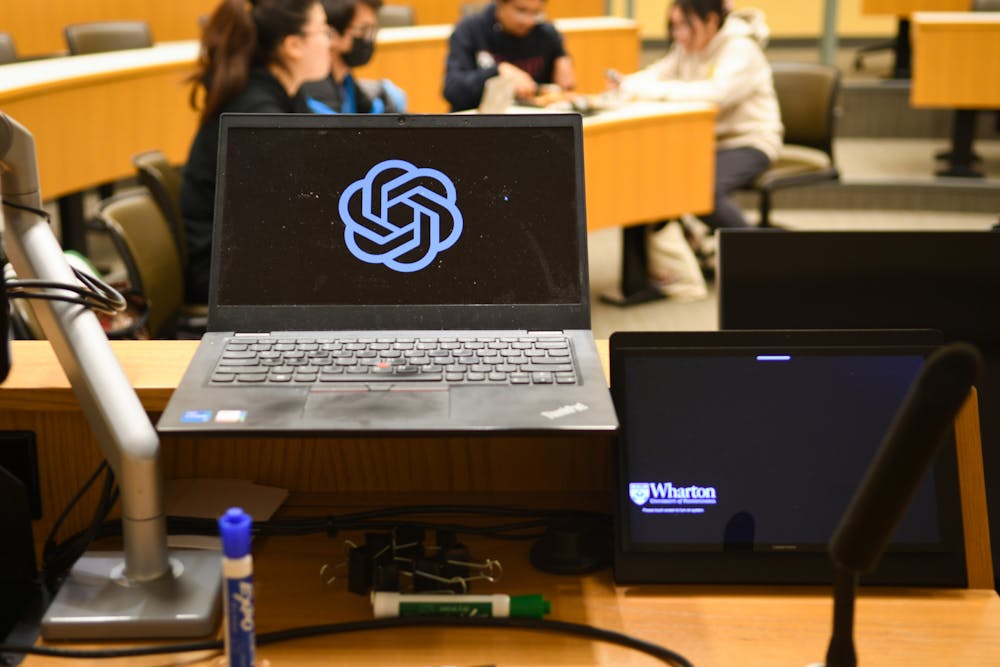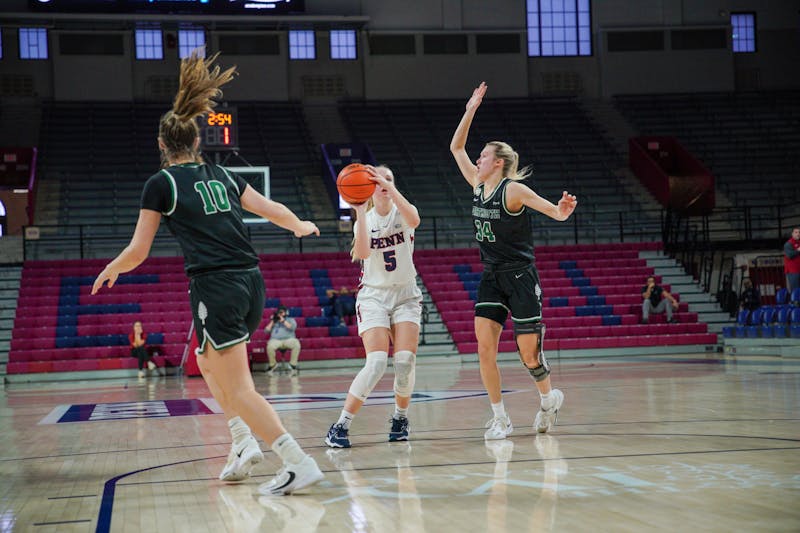
Columnist Ashti Tiwari discusses how taking shortcuts is replacing critical thinking.
Credit: Benjamin McAvoy-BickfordAs a first year, I took a classical studies course with the current College of Arts and Sciences dean, the policies of which included no technology, no recorded lectures, oral and written exams, and the whole “traditional” shebang. I spent an hour and a half twice a week scribbling in my notebook to keep up with the lecture, frantically trying to get everything down.
At first, I hated that class. I couldn’t check my emails or finish up another assignment during lectures. Skipping wasn’t an option, and there were no slides to rely on if I missed something. Every test challenged my understanding of the lectures, the readings, and my ability to critically analyze them.
Yet, by the end of the semester, I had undoubtedly learned a vast amount. I honed my ability to think critically about the material, making it one of the most rewarding academic experiences I’ve ever had.
To most Penn students, that class probably sounds like a nightmare, and at one point, I almost dropped it myself. Why? Because it was tough, and if given the choice between an easy or hard path, most of us would opt for the easier one. Not out of laziness, but because we’re managing other challenges — whether it’s recruiting, internships, extracurriculars, or other demanding classes.
Thus, we tend to take shortcuts to make space for the things we care about. What do I mean by shortcuts? The obvious one is artificial intelligence, but I’m also talking about copying information without comprehension, using SparkNotes instead of reading the material, and memorizing content but not thinking any deeper. When we use these tools as a replacement for learning, it undermines our critical thinking skills.
We lose the art of critical thinking when we rely on shortcuts, and the tradeoff isn’t worthwhile. The ability to form thoughtful opinions is essential in every aspect of life, as is the skill of understanding nuance in any situation. Without these abilities, we lose the very essence of thought and risk becoming mere information processors. No shortcut is worth sacrificing that.
I could spend 10 minutes reading SparkNotes instead of an hour doing the actual reading, but when I participate in class the next day, my contribution will inevitably be superficial and lacking depth in comparison to the person who labored over each page of the assignment.
There should be a greater emphasis on class participation, requiring meaningful and thoughtful contributions to class discussions. Of course, this can only be achieved through smaller classes. But when 70% of College classes are under 25 students, and the other 30% likely have recitations where more interactive participation could happen, the potential is there. These smaller classes and recitations are often more powerful because they offer a better space for discussion and deeper engagement. There’s no simple fix, but pushing students to move away from shortcuts could help steer us in the right direction.
College administration is even advocating for adjustments to adapt to the age of AI, where we can incorporate creative elements in assignments to make them “ChatGPT-proof.” This effort to standardize AI policies raises a larger question about what students should be gaining from higher education, which should certainly include the development of critical thinking skills.
This is a positive step because while we can’t ignore AI, adapting our learning processes so that AI remains a tool rather than a replacement will ensure it doesn’t diminish our knowledge as students.
It’s worth noting that for some students, higher education isn’t just about learning. In many cases, it’s the opportunities that come with it, and I even recently argued how students should be taking greater advantage of preprofessionalism.
In situations where academics aren’t the main focus, taking shortcuts can lighten the load, allowing students to dedicate more time to what matters most to them. However, critical thinking is a skill everyone will need in every area of life. College is the perfect place to practice the ability to take in new information and challenge it. I’m not suggesting you take the exact class I mentioned earlier, but I encourage you to think twice before relying on shortcuts and instead use your judgment to assess information.
That said, it’s not just academics where shortcuts can be tempting. Professional and personal skills should also be developed naturally, as these are crucial for long-term career success and personal growth. My main point is, don’t shortcut the things you truly care about. Spend time with them, engage deeply, and you’ll find that the critical thinking skills you build along the way will serve you for a lifetime.
Challenge, critique, or embrace ideas because you’ve formed that opinion yourself, not because of AI or another online source. The art of critical thinking is a valuable and ever-evolving skill, so don’t lose it by relying on shortcuts.
ASHTI TIWARI is a College sophomore from Corning, N.Y. studying philosophy, politics, and economics. Her email address is ashti@sas.upenn.edu.
The Daily Pennsylvanian is an independent, student-run newspaper. Please consider making a donation to support the coverage that shapes the University. Your generosity ensures a future of strong journalism at Penn.
Donate








